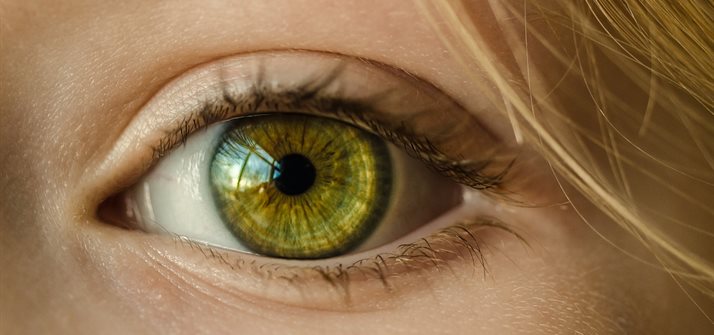Sight-saving Wound Dressings - NuVision

Trauma patients rushed to A&E with serious eye injuries can now benefit from a ground-breaking sight-saving wound dressing made from amniotic membrane.
The unique biological dressing ‘Omnigen’ was originally developed by researchers in The University of Nottingham’s School of Medicine, work which led to the formation of a University spin-out company NuVision Biotherapies. Omnigen has the potential to revolutionise the treatment for emergency cases of ophthalmic wounds including abrasions, burns and more serious perforations, as well as planned operations on the eye.
NuVision has now been granted a full licence by the Human Tissue Authority to distribute Omnigen, and patients coming for treatment at Nottingham University NHS Trust’s Queen’s Medical Centre are among the first to try this innovative new treatment.
"As easy as applying a contact lens"
Dr Andrew Hopkinson, principal research fellow in Academic Ophthalmology within the Division of Clinical Neuroscience at the University, and CEO and founder of NuVision Biotherapies, said:
Imagine a world where treating a serious eye injury could be as easy as applying a contact lens. Omnigen will allow hospital emergency departments to treat patients quickly and give them the best chance of recovery in a way which has never before been available to them
Natural healing properties
Over the past two decades, amnion — the innermost layer of membrane from the amniotic sac collected from caesarean deliveries of newborn babies — has been developed for a number of medical applications including wound care.
The tissue is rich in collagen and a variety of growth factors that can promote wound healing. It also has natural antibacterial properties, immediately reduces pain on contact with a wound and can be used on patients of all blood types.
Currently amnion for medical use is stored by cryogenically freezing it at -80˚. Unfortunately, this method of preparing the membrane and storing it at such a low temperature can damage the tissue and reduce its clinical effectiveness.
Freezing the tissue also requires heavily regulated cold chain storage and costly logistics, which prevents storage in hospitals. Amnion can only be distributed for scheduled surgery once ordered, taking up to 24 hours for delivery, on a named patient basis, and once it reaches its destination must be used within 48 hours or be discarded.
Until now, these difficulties have also prevented amnion from being used as an emergency therapy for the routine treatment of trauma.
Infection-fighting
Dr Hopkinson was challenged to overcome these problems while studying for his PhD at The University of Nottingham, which has led to the revolutionary new preparation of amnion, which the company calls Omnigen™. Using a patented Tereo™ manufacturing process, the company has standardised a new approach to processing the membrane and preserving its therapeutic properties in a new easy-to-store dry format.
When applied, the natural moisture in the eye works to rehydrate the patch and immediately delivers a 70 per cent reduction in pain for the patient without the need for extra painkillers. The way the amnion is treated also retains some antibacterial features, which results in extra infection-fighting properties and speeds the healing process. It can be applied on a structure converting it into a type of contact lens which can be removed and reapplied as necessary or can remain in the eye as a type of scaffold on to which eye cells can grow as the organ heals.
The breakthrough has huge implications for its clinical use: for the first time, hospitals can order specially vacuum-sealed packs containing multiple bandages to be stored with regular hospital supplies at room temperature and used immediately in the event of emergency cases coming into the A&E department. Nurses can be trained to apply Omnigen, offering even more flexibility to the NHS and benefit for patients.
Professor Harminder Dua, Professor of Ophthalmology and Visual Sciences and Honorary Consultant Ophthalmology, is now treating patients with Omnigen at his clinic at Nottingham University Hospitals NHS Trust.
NuVision
NuVision is now based in MediCity, a rapidly-expanding innovation hub for consumer healthcare, medical technology, diagnostics and beauty products on the Boots UK site in Nottingham.
NuVision received £379,000 seed-funding from Mercia Fund Management to support the commercialisation of the technology.
NuVision won the Best Start-up award at the Medilink EM Business Awards 2017, having won the Innovation award two years earlier.
Experts:
Dr Andy Hopkinson
Professor Harminder Dua